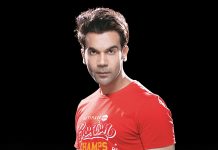Muslims like all communities in India have never been a monolith, and are not to be caricatured and stereotyped, above all they have a mind of their own and cannot be generalized. Despite all these caveats, certain trends are emerging around the political campaign when it comes to Muslim voters, votes and the attitude of the politicians to Indian Muslim voters. The prime minister attacks the Congress manifesto by drawing a comparison between the Muslim League and the Congress. The retaliation of the congress party and the polarized way of conversation in this election season has been the trend presently.
The core factor should be that the motto of the election has to be the building of India, the Indian constitution, the democracy and the institutions in it. The country cannot achieve its aspired goal without the institutions. Demolishing or damaging the institutions is not in the interest of the country. India is recognized globally because of its democratic institutions. The politics of the ruling party is a kind of dog-whistling politics, the prime minister’s reaction towards the manifesto regarding the mention of Muslims indicates intolerance and is unhealthy for the democratic process in the country.
The campaign strategy of the BJP is all about the Ram Temple, Muslims and the Muslim League, Hinduism, and religion. The political parties are doing appeasement politics. When the RLD of Uttar Pradesh has joined hands with the BJP, is it understood that an allied party would be fully answerable or have to agree to the ideas and narratives of the ruling party? As per the RLD spokesperson, it is a secular party, 16% of its funds are spent on Muslim minorities and a huge section of the population in western UP is dominated by Muslims.
It is very unpleasant and unfortunate when the religious identity is pointed out about political leaders. It is also important that anybody who is in public life has to only cater to the community that they belong to rather they should cater to the party and the vision of the party. The identity of a Muslim political leader should not be judged only by their religious identity. The Muslims in India are not a monolith, they are not one-dimensional voices of Muslims, and the religious identity is one part of their identity. The muslins are expected to vote on the line of being Muslims, but before that they are Indians. The Indians are the caretakers or custodians of the legacy of the constitution of India. That is the fight for, it is the duty and responsibility of all Indians to fight against the forces which bring communism into politics.
The Muslims are forced to think on communal lines because the BJP is pinpointing every possible aspect of the Muslim community’s status. Muslims are not minorities, they are the second-largest majority in India. So they are attacking the core issue of the constitutional rights of minorities. This kind of politics is not nationalism but anti-minority, anti-Muslim, anti-secular and against the constitution. Those parties which are allied to BJP and NDA ought to ask this question to the ruling party that what you are doing is not constitutional and secular rather than holding up a middle ground and playing safe.
The Muslim communities were extremely ghettoized in all the states when Congress was in power. When it comes to development, any party speaks of development that will benefit all irrespective of religion. Based on hate speech, whistle-blowing about the destruction of democracy and not considering the found reality, only speaking louder about the Muslim community and communalism and not doing any action nothing but showing double standards.
There’s a political decimation of Muslims, after 2019, there are only 5% of MPs in the Lok Sabha in the 15% Muslim population. The Muslims have to make themselves educated, and qualified and put in authoritative or decision-making positions to be relevant in the country. Muslim candidates are not getting tickets to fight elections by any of the opposition parties which are shouting about Muslim league slogans and getting votes from the community. When there is no or absolute meagre political representation from the Muslim community in those parties they show themselves as so-called pro-Muslim parties. The parties that come to power on a sizable percentage of Muslim votes are as defensive about giving tickets to Muslim candidates and they have fewer rights than the BJP.
Muslim leadership has committed mistakes by supporting or opposing political parties blindly. Parties should be supported and opposed on issues, not on false propaganda and narratives. Muslims should behave as Indians first not only as community vote banks. The political parties expect Muslims as a silent vote bank that does not ask questions. Therefore it is needed that educated Muslims should come forward to fight for the rights of the community. The only way the muslin community can flourish is the way of education, talent and capability. So Muslim educational institutions should not be challenged which can lift the status and relevance of the community and their identity. At the same time, we should not forget that these educational institutions are highly political, one can not claim that the politics is for segregating a Muslim institution only. There are many Muslims on the ground level who are active parts of the political system.
-OdishaAge
|
ReplyForward
|




















